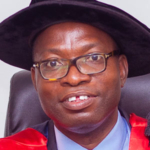Value-addition to under-utilised food crops for wealth and health
The key contributors in many academic institutions are mostly the academic staff, therefore their “quality” matters. Without a doubt, research outputs (probably leading to innovations) and successful grants remain the key indicators of measuring scholarship in an academic institution. Before pursuing doctorate degrees, about half (47%) of the academic staff were second-degree (M.Phil./M.A.) holders, while the others were possibly M.Sc. and B.Sc/B.A. holders. Only one candidate had a tenure position at the time of entry (senior lecturer). Most (about 63%) Ph.D. degrees were obtained outside Ghana; the highest, with full funding, was in Germany (Table 1). Almost three-quarters (72%) of those who studied in Ghana were self-funded. Interestingly, 19% of those who studied outside Ghana were willing to commit to a partial scholarship in China, South Africa, and the United States. It can be concluded that most of the UDS’s doctorates experiences were from outside Ghana, with Germany leading. The average to complete was three (3) years and eight (8) months, in the range of 3 to 4 years designed for doctoral programmes in Europe, Africa, and Asia. During the Ph.D. programme, the knack for publishing was harnessed, leading to about three-quarters of them publishing from their thesis.





